After residing in California these past five years, I’ve come to appreciate the chip on its shoulder when it comes to national politics. The largest population (12 percent of the U.S.), the biggest economy (15 percent of the nation’s GDP, ranking it larger than all but four nations worldwide), and the leadership in technology, innovation, environmentalism, and diversity—none of these distinctions earn it a pivotal role in shaping who governs and what policies become law in Washington. Yes, the state’s House delegation wields considerable influence in the chamber, through its size and party leadership positions, including the estimable Speaker Nancy Pelosi. But the Congress is bicameral and the fateful bargain struck by the Framers to apportion two seats per state in the Senate renders California’s voice there no louder than that of Wyoming or Vermont. The anachronistic and delegitimizing Electoral College currently limits consequential campaigning to fewer than a dozen potentially swing states, leading the two major party presidential candidates to treat the state as a supercharged-ATM rather than a source of votes. As in 2016, California could once again provide the lion’s share of a large popular vote victory for the losing presidential candidate.
It’s no surprise, then, that California has tried to strategically allocate its large number of delegates to each party’s national presidential nominating convention. Traditionally, both parties in the state saw advantages in maintaining a late (June) date in the nominating schedule and winner-take-all rules for allocating delegates among competing candidates. This, they believed, put them in a position to influence the selection a nominee in the absence of a decisive frontrunner. As Elaine Kamarck has described, the reform movement between 1968 and 1972 that limited the role of free-wheeling elected and party officials, bound delegates’ first-ballot votes mostly through primaries, and eventually (on the Democratic side) forced states to use proportional rules for allocating delegates, rendered these efforts ineffectual. The latter took some time to accomplish—Senator George McGovern’s narrow victory in the 1972 California Democratic primary, after surviving a hotly contested floor challenge to the winner-take-all rule still in place, won him all of the state’s delegates and a clear path to victory at the Miami Convention (though insufficient to avoid a landslide defeat in November). By 1992, all states had to use proportional rules for awarding delegates to Democratic presidential candidates.
California Democrats, who turned the state blue that year, continued to search for ways to have more say in selecting their party’s presidential nominee. The date of their primary seemed their only potential leverage. In the face of an increasingly front-loaded calendar, the state’s Democrats made “three different and largely unsuccessful attempts to jump the line and give California voters more clout when to comes to picking presidential nominees.” Governor Jerry Brown resigned himself and state Democrats to that failure and signed a law in 2011 moving the primary back to June. But hope springs eternal and supporters succeeded once again in scheduling an early primary, now set for Super Tuesday: March 3, 2020. Will California matter this time around?
As I write this a few days before the February 29 South Carolina primary, the answer is yes—though possibly not in the way its supporters intended. California is hosting the most delegate-rich primary election on the day roughly one-third of Democratic delegates will be chosen in 14 states plus one territory, with the outcome (a presidential nominee) not yet set in stone. Billionaires Mike Bloomberg and Tom Steyer have already spent over $100 million on political ads in the state and that number could double by Tuesday. Bernie Sanders and a few other candidates are adding some millions to this staggering total. All good for the California economy. And Californians know they are being courted by presidential candidates, not a frequent experience in recent decades. Some of the candidates have more than respectable ground games underway in the quest for delegates allocated by congressional districts. Sanders has had a serious effort underway in the state since 2018 to court especially Latino and young voters.
It now appears California will play one of two roles. The first would be to confirm Bernie Sanders’ frontrunner position and, together with other Super Tuesday states, give him a delegate lead big enough to carry him through the rest of the primary schedule to a first-ballot victory in Milwaukee. The second would be to help spread the Super Tuesday delegate wealth more evenly, keeping alive the campaigns of several other candidates who then extend the contest to the end of the primary season and possibly all the way to the convention. From my vantage point in California, the odds of the former are higher than the latter.
Sanders has a significant lead in California, sufficient funds to keep himself visible, and an organization strong enough to harvest Election-Day votes from key constituencies. Moreover, it is not at all clear how many other candidates can reach the 15 percent threshold, statewide or by congressional district, needed to win delegates. Joe Biden, Bloomberg, and Elizabeth Warren are within striking distance statewide but they could just as easily fall short, giving Sanders all of the delegates allocated at the state level. The same uncertainty is present in congressional districts, lending Sanders a good chance of building a sizeable delegate lead. This has been a major feature of the nomination contest more broadly. Sanders has a strong factional base and a divided opposition, which can translate into a majority of delegates.
Sound familiar? Donald Trump was in much the same position in 2016. Opposing Republican candidates and party officials were unable or unwilling to take steps that might have prevented the elevation of a factional leader to the highest position of that party. Against all odds, Trump won that general election and set the country on a slide toward authoritarianism. Bernie Sanders is a Democrat, not an autocrat, but a democratic socialist whose nomination risks a general election defeat that would leave Trump in office and a continuation of that slide. California, would that be worth once again becoming a player in Democratic party nomination politics?
The Brookings Institution is committed to quality, independence, and impact.
We are supported by a diverse array of funders. In line with our values and policies, each Brookings publication represents the sole views of its author(s).


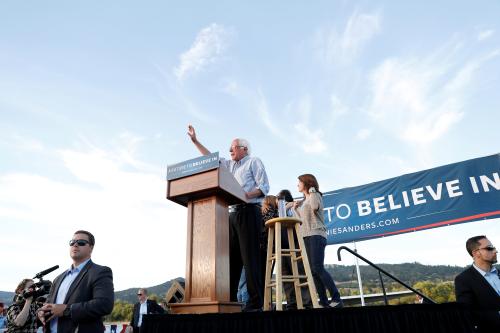
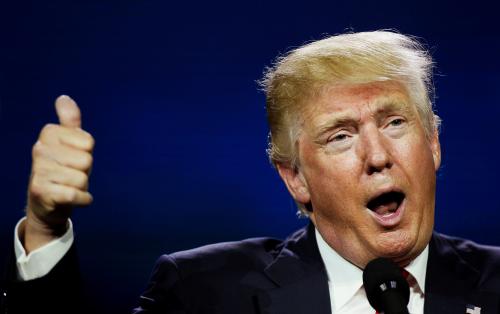
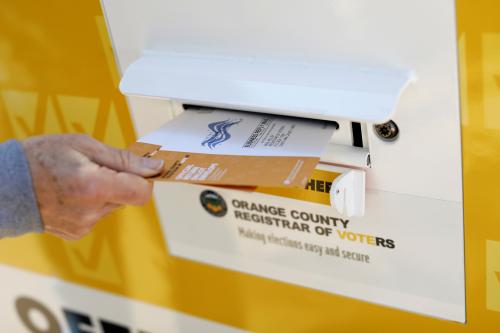

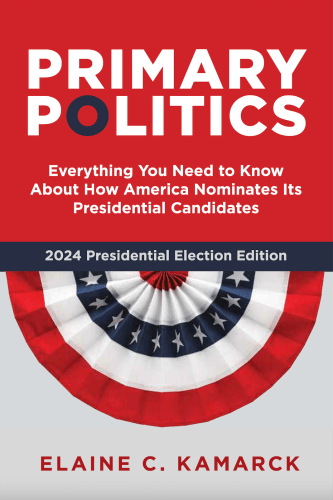
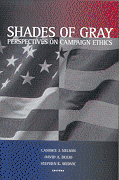
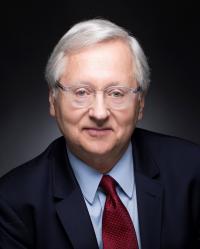
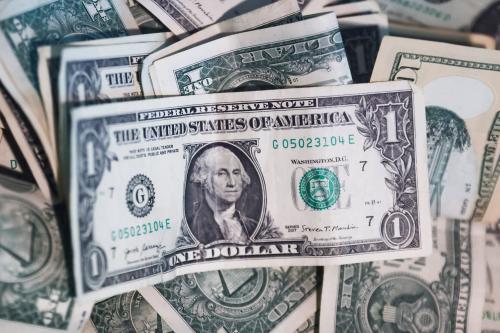


Commentary
New to Super Tuesday, California could either make or muddle the Democratic primary
February 28, 2020